You are here
 September 22 2021
Anglicans Interpret the Bible
September 22 2021
Anglicans Interpret the Bible
The 16th century reformers had one compelling goal: to get the Bible into the hearts and minds of the English people. They were confident that God would use this to transform individuals and the whole of society. They were true catholics who were returning to the Bible that they saw as the original source for their centuries-old faith.
Read more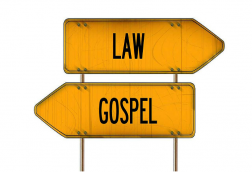 September 21 2021
WHAT'S WRONG AND HOW TO FIX IT - FitzSimons Allison
September 21 2021
WHAT'S WRONG AND HOW TO FIX IT - FitzSimons Allison
In his book Civilization and its Discontents, Sigmund Freud (1856-1939) saw guilt as indispensable building block for civilization but he also saw it as civilization's chief discontent.
Read more September 20 2021
Study: Majority of Self-Identified Christians Don't Believe the Holy Spirit is Real
September 20 2021
Study: Majority of Self-Identified Christians Don't Believe the Holy Spirit is Real
The latest report from the Cultural Research Center at Arizona Christian University shows that self-identified Christians in America tend to hold beliefs that are thoroughly unbiblical--even on basic issues of theology.
Read more August 19 2021
Uninformed Consent: The Transgender Crisis Children cannot make these choices and should be protected from them
August 19 2021
Uninformed Consent: The Transgender Crisis Children cannot make these choices and should be protected from them
This cast of mind extends even to supporting the willfulness of prepubescent children (ages 8 to 14), supposing for them not only a right to decide on their sex but the still more radical right to demand and gain the medical and surgical procedures ("affirmative treatment") to shape their bodies to match their wishes and presumptions.This extension of the cultural supposition about transgenderism to include the medico-surgical treatment of youngsters is the subject of intense debate and legal
Read more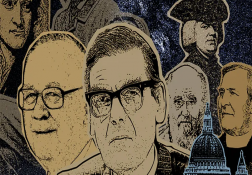 August 16 2021
Anglicanism and the Natural Sciences
August 16 2021
Anglicanism and the Natural Sciences
It is widely agreed that the development of what used to be known as the “Scientific Revolution” of the later 17th century (but which scholars now prefer to designate the “emergence of a scientific culture”) was shaped significantly by Anglicanism. This development partly reflects the aftermath of the English Civil War of 1642-51, which led to social, political and religious fragmentation, and seriously threatened England’s future as a European power.
Read more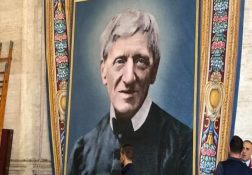 August 12 2021
The Oxford Movement in Context: Anglican High Churchmanship, 1760--1857
August 12 2021
The Oxford Movement in Context: Anglican High Churchmanship, 1760--1857
According to Newman, the Oxford Movement was launched by a sermon in 1833 ("National Apostasy") in which John Keble fussed at the nation for not being more like the prophet Samuel. This was followed by a series of 90 "Tracts for the Times." Newman wrote 27 of them.
Read more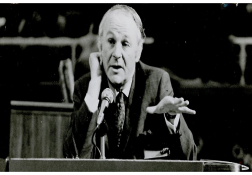 August 10 2021
John Stott (1921-2011) and his contribution to an evangelical analysis of Roman Catholicism
August 10 2021
John Stott (1921-2011) and his contribution to an evangelical analysis of Roman Catholicism
By helping post-World War II evangelicals to regroup around the biblical gospel and for the Christian mission, Stott also had a role (albeit not a primary one) in influencing the evangelical reading of Roman Catholicism that emerged from the Second Vatican Council (1962-1965).
Read more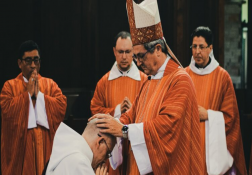 August 02 2021
Apostolic Succession Reinvented
August 02 2021
Apostolic Succession Reinvented
Anglicans and most Protestants hold to an understanding of "Apostolic Succession" as the succession of apostolic teaching as St. Paul directed to Timothy (2 Tim 2:2). This important "passing-on" is symbolized by the laying on of hands at ordinations. The church always veers into trouble when the symbol is given priority over the thing symbolized.
Read more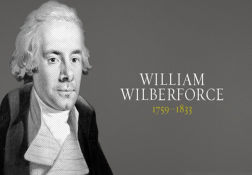 July 26 2021
Wilberforce and the New Heaven
July 26 2021
Wilberforce and the New Heaven
What motivates Christians like Wilberforce to act for justice, beauty and evangelism? Not some artificial mandate to construct the Kingdom of God on the earth. Rotary Club religion, the so-called "social gospel" or "liberation theology," makes Christianity into some social reform movement and uses Christ as a motivational tool.
Read more July 12 2021
Contending for the faith -- Reflections on Retirement
July 12 2021
Contending for the faith -- Reflections on Retirement
At the time Reform rattled the bars of the powers-that-be. In all honesty it unsettled a good number of fellow evangelicals, perhaps especially those who had heeded the call of the first National Evangelical Anglican Congress at Keele in 1967 to join in more positively with the institutions of the CofE to make their evangelical influence felt from within.
Read more


